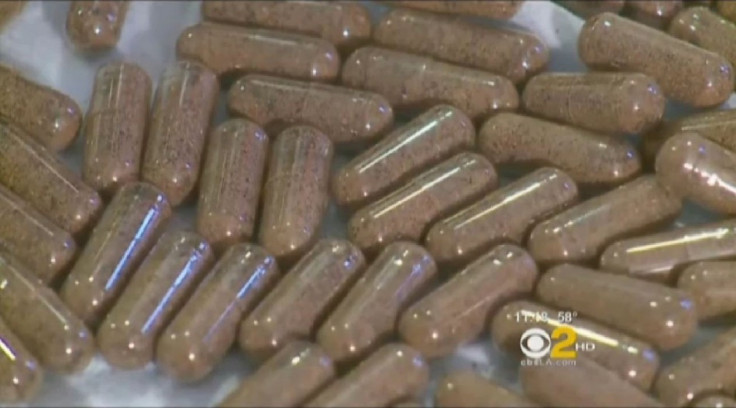Eating Placenta After Birth May Be Healthy, Study Suggests

Why don't humans eat placentas? Most mammals after childbirth eat the veiny organ that connects a developing fetus to the mother, but in humans the practice remains rare. However, new research suggests that eating the placenta may be healthy both for mother and newborn.
The placenta contains hormones that help shrink the uterus back to its normal size and oxytocin, a painkiller, which eases pain and helps stimulate milk production, according to a new study. In humans, eating the placenta, called placentophagy, could increase mother-infant bonding as well, researchers said.
Anecdotal evidence of the benefits of eating placenta stem from unverified reports that distant cultures and back-to-nature communes engage in placentophagia, according to the study authors.
The more challenging anthropological question is: 'Why don't humans engage in placentophagia as a biological imperative as so many other mammals apparently do?' because we clearly do not do this as a matter of course today and apparently never have. Perhaps for humans, there is a greater adaptive advantage to not eating the placenta, Mark Kristal, lead researcher and professor of psychology and neuroscience at the University at Buffalo, said in a statement.
Whether or not we learn why humans do not do this, it is important for us to search for the medicinal or behavioral benefits of components of afterbirth for the same reasons that we search for plant-based medicinal substances, said Kristal, a noted expert in placentophagy.
The journal Ecology of Food and Nutrition will publish the study on Thursday.
Placenta eating recently made headlines after actress January Jones, star of the popular TV show Mad Men, told People Magazine in an interview released Friday that she ate the placenta of her newborn baby. Jones said the placenta helped reduce the effects of her postpartum depression.
Your placenta gets dehydrated and made into vitamins, Jones said in the interview. It's not witch-crafty or anything! I suggest it to all moms!
She's not alone. More and more women appear willing to ingest placenta, either by cooking their baby's or by taking a placenta pill.
I didn't experience mood swings and I had more energy while taking the pills, Elizabeth Stark, baby blogger for Babble.com, wrote in a post in September. Though I don't have a double-blind, peer-reviewed study to back up my claim, I feel confident that placenta-eating made those first few postpartum weeks easier.
Placentophagy is most common in Eastern cultures where placenta is sold as a traditional medicine. Known as Ziheche, the dried placenta is used to treat infertility, impotence and breastfeeding problems, according to EverydayHealth.
Not everyone advocates for placentophagy. Author Nancy Redd took placenta pills after the birth of her son and said it was a terrible idea.
Shortly after my first dose of two pills, I felt jittery and weird, Redd said in a New York Times article. By the next day, after just eight placenta pills, I was in tabloid-worthy meltdown mode, a frightening phase filled with tears and rage. This lasted another couple of awful days before my husband suggested that it wasn't postpartum mommy madness finally making its appearance, but the hormone-and-goodness-knows-what-else-filled placenta pills.
Just because animals eat their placenta doesn't mean humans should, Maggie Blot, spokeswoman for the Royal College of Obstetricians and Gynaecologists, told BBC News.
Animals eat their placenta to get nutrition, she said. But when people are already well-nourished, there is no benefit; there is no reason to do it.
© Copyright IBTimes 2024. All rights reserved.





















